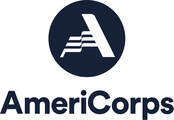|
This is a reminder that proposals for the PAWV 2016 Conference are due April 25. Here is the full request for proposals.
Preservation Alliance of West Virginia is currently accepting proposals for its next statewide historic preservation conference, scheduled for September 22-24, 2016. It will be held primarily in Beverly, with some opportunity for programming in the immediate Randolph County vicinity (Elkins, etc.). This year’s conference theme will be This Place Matters: Connecting with Historic Places. Conference proposals should relate to the theme and fit into at least one of three tracks:
This is a request for knowledgeable professionals willing to lead one or more of the following: Keynote speeches Plenary speeches Half- or full-day workshops Educational walking or driving tours Educational sessions Round-table discussions Panel presentations Student/AmeriCorps poster session For more information on each of these positions, necessary qualifications, and applications, please see the guidelines below. Here is a downloadable version of the PAWV conference RFP 2016 Submit proposals via email to [email protected] by April 25, 2016. For more information, please contact PAWV’s Executive Director, Danielle LaPresta Parker, at [email protected] or 304-345-6005. This RFP does not indicate any promise to follow through and implement any proposals. We reserve the right to select different trainers for workshops, sessions, etc. We reserve the right to accept late proposals if insufficient or inadequate proposals for all slots are not received by the deadline. We may suggest revisions to your proposals for your consideration. PAWV staff will organize and direct all events and will have final approval of content. This conference will be funded in part with federal funds from the National Park Service, Department of the Interior and the WV Division of Culture & History, State Historic Preservation Office. Regulations of the U.S. Department of the Interior strictly prohibit unlawful discrimination in departmental Federally Assisted Programs on the basis of race, color, national origin, age or handicap. Any person who believes he or she has been discriminated against in any program, activity, or facility operated by a recipient of Federal assistance should write to: Office of Equal Opportunity, National Park Service, 1201 Eye Street, NW (2740), Washington, DC 20005. Proposal Application Requirements: Professionals interested in providing preservation training for any of the above formats — speeches, workshops, keynote speakers, educational sessions, roundtables, panel discussions, poster sessions, and/or educational tours — should submit a proposal including:
Presenters will be offered free admission to the conference for the day (excluding banquet) of their presentation, plus the volunteer-discount rate to attend the rest of the conference. Presenter fees, when paid, will be negotiated on a case by case basis. Presenter fees may be offered to major speakers, with smaller amounts offered to panel participants and additional presenters if funds are available. No separate travel expenses will be paid. Positions Available: Plenary and keynote speakers We are seeking one plenary speaker and two keynote speakers for the following: A 15-30 minute plenary speech on local history or preservation – or on one of the conference themes/tracks – for an opening session directly following Friday’s lunch; A 30-45 minute keynote speech related to the conference theme or one of the conference theme/tracks for the awards banquet on Friday evening; A 30-45 minute keynote speech related to the conference theme or one of the conference theme/tracks for the luncheon on Saturday afternoon. Workshop leader Trades workshops are best held at a historic property, with hands-on work performed on the property as part of the workshop. Some workshops may include a classroom component or may be intensive training on a focused topic. Occasionally, other formats – such as a longer training period, or combining multiple skills in one workshop – may be offered. These workshops can be either a half or a full day. Trainers should have extensive experience in the specific skill, thorough familiarity with historic preservation issues regarding that skill, and experience in teaching the skill. Trainers are encouraged to bring additional hand tools for students’ use for hands-on practice. Seminar, panel, or round-table type workshops related to one of the tracks could also be considered for workshop topics or presentations more appropriate to a longer format than the 75 minute educational sessions. Educational speakers Educational speakers will lead 75 minute sessions related to one of the tracks. Each session will most likely be held in an educational breakout room at a specific site. Conference participants will have the option of attending various sessions throughout the three-day period. Speakers should have extensive experience in the specific topic, thorough familiarity with historic preservation issues regarding that topic, and/or experience in teaching the topic. Round-table leaders The round-table discussions, which should be related to one of the tracks, will be 75 minutes long and will be located in a specific educational breakout room. Leaders of round-table discussions must have widespread knowledge and experience working with the specific topic. Leaders will be available to discuss and answer questions asked by conference participants regarding the discussion topic, as well as to encourage constructive input and sharing of experiences by the participants. Panel presenters and moderators The leaders/moderators of panels related to one of the tracks will assemble 2 or 3 panel presenters to each give a short presentation related to the same theme, followed by discussion led by the moderator. The names, contact information, and qualifications of each panel participant should be included in the proposal. Panels last 75 minutes and will be held in a specific educational breakout room. Tour guides (walking or driving) Walking tours generally run from 1 ½ to 3 hours. Driving tours may be a half-day or longer. Guides must have pervasive knowledge of the historic structures and properties described on the tour. PAWV requests that tour guides be knowledgeable not only in the historic uses of the buildings, but also in the methods, strategies, and/or technologies used during the preservation, adaptive reuse, etc., of the structures/sites. The primary focus of the tour should be related to historic preservation, the conference theme, and/or one of the conference tracks; however, PAWV encourages tours to also share aspects of local history. Poster session The poster session will include the presentation of research or a historic preservation project by an individual (typically a student or AmeriCorps member) or by representatives of a project team. Posters will be displayed in an exhibitor hall, and presenters will accompany their posters – illustrating their research methods or project scope and outcomes. The posters will be displayed during the entire conference, but the poster presentation session will be held over a period of one hour on Friday or Saturday of the conference. Three Conference Tracks: Conference attendees can choose to attend workshops and educational sessions related to three conference tracks, which focus on specific themes common in historic preservation projects and development. By featuring three different tracks, conference attendees can choose the topic that best reflects their interests and gain the most from their experience. Attendees will have the choice of Thursday workshops and tours reflective of track themes, as well as Friday and Saturday concurrent educational sessions. Proposals should be related to one of the following tracks.
Comments are closed.
|
News and NotesCategories
All
Archives
May 2024
Subscribe to our mailing list to receive e-news updates on historic preservation news and events in West Virginia.
|
Get Involved |
Programs |
Contact UsPreservation Alliance of West Virginia
421 Davis Avenue, #4 | Elkins, WV 26241 Email: [email protected] Phone: 304-345-6005 |
Organizational Partners:
© COPYRIGHT 2022 - PRESERVATION ALLIANCE OF WEST VIRGINIA. ALL RIGHTS RESERVED.

 RSS Feed
RSS Feed



